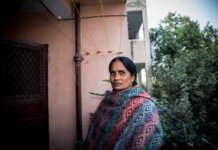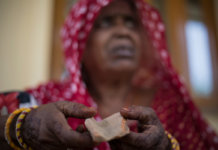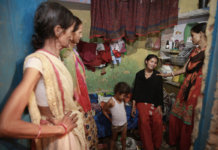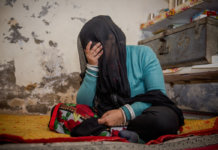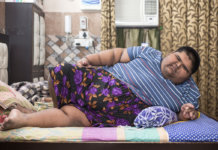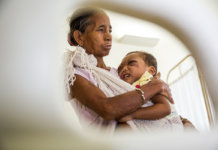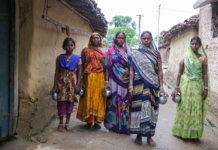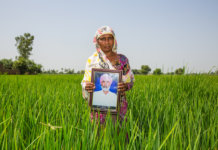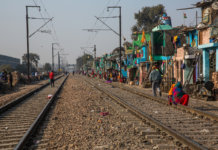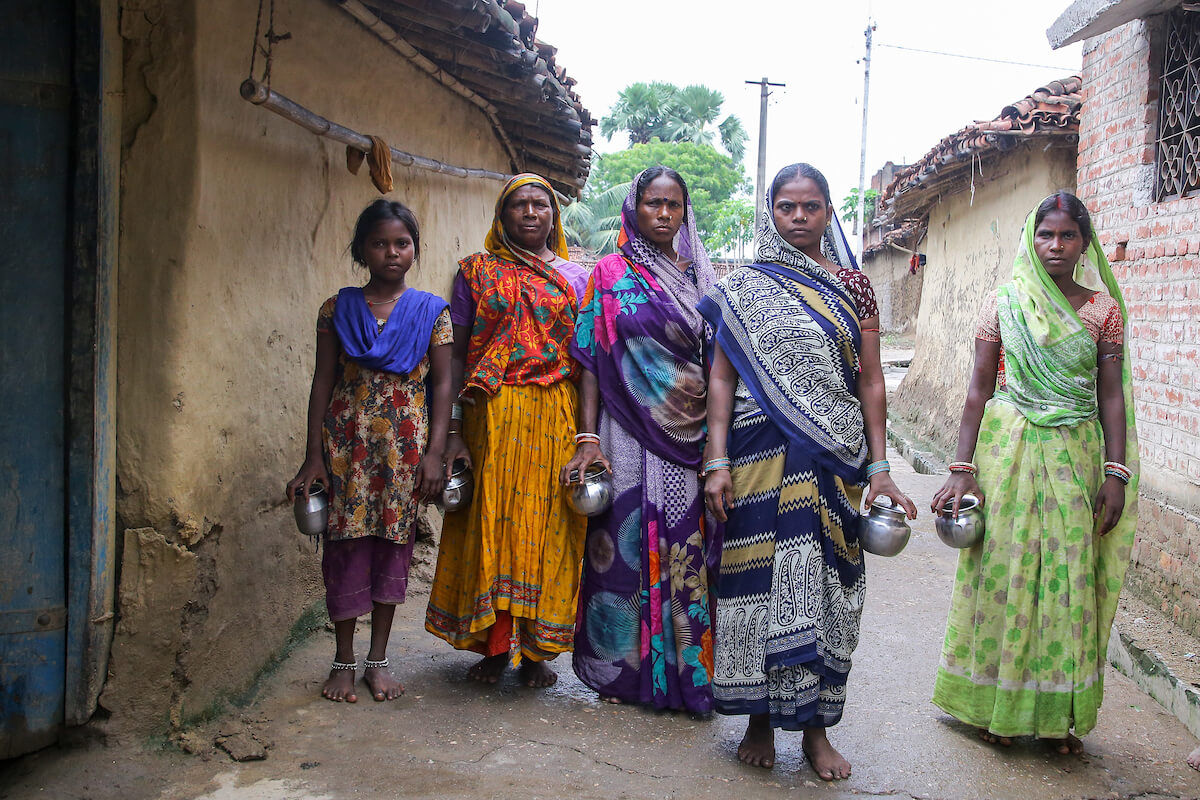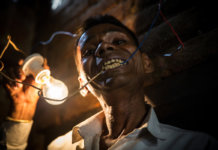Pregnant Priyanka Devi has spent the entire day without food. She’s actually starving but she’s refused to eat a morsel. She is fact avoiding the need to go to toiletand is prepared not eat all day so she will not need to rellieve herself.
Priyanka, 24, lives in Ghazipur village, in Nawada, Bihar, eastern India, a village with around 400 well built houses of around 2,000 people, but none have a singletoilet due to their superstitious beliefs.
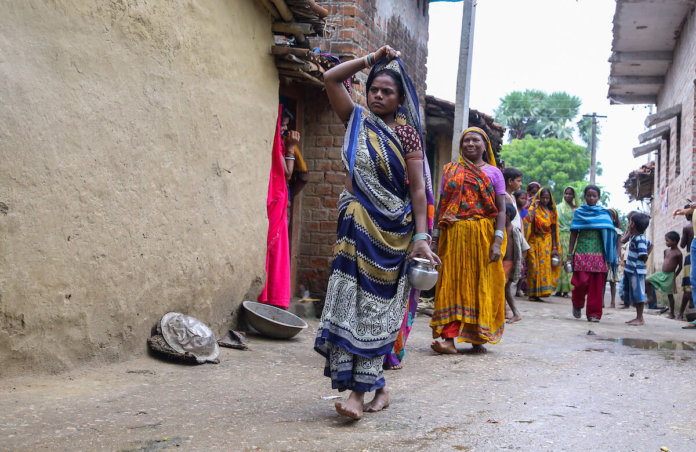
All the women in the village rely on an open field, and to prevent embarrassment, most women only relieve themselves in the evening.
Priyanka said: ‘A new bride is not allowed to go into the fields in the day. No matter what the emergency she will have to wait until sunset before she can relieve herself. Villagers do not appreciate this. They all know there is no toilet in the village but nobody wants to understand the plight of us women who finds it difficult to control our bladders, especially if we’re pregnant.
‘I just avoid eating all day and wait for the evening to use the fields to relieve myself. I hope my child does not suffer the repercussions of this.’
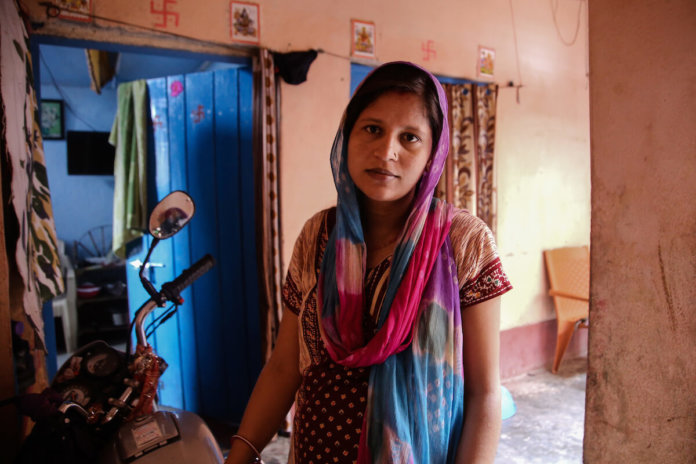
Villagers believe building a toilet in the house would bring bad luck because anyone who has ever tried has ended up facing tragedy.
The superstitions began back in 1984 when an affluent farmer tried to build a toilet in his house but tragically, he lost his son to a mysterious illness at the same time. Since then, a series of tragic events have continued whenever someone has tried to build a toilet.
Leela Kumari, 44, a housewife, was never told by her husband at the time of her marriage that there would be no toilet in the house they would share.
She said: ‘I was shocked when I came to know the situation post marriage. I fought with everyone including my husband, in-laws and even my parents. I did not want to live here but I had no choice as I was married now. I was forced to openly defecate in fields and wait for the sunset as men would work during the day in those fields. It was devastating but eventually I got used to it. I’m still not comfortable with it as it is humiliating to wait all day just to relieve yourself.’
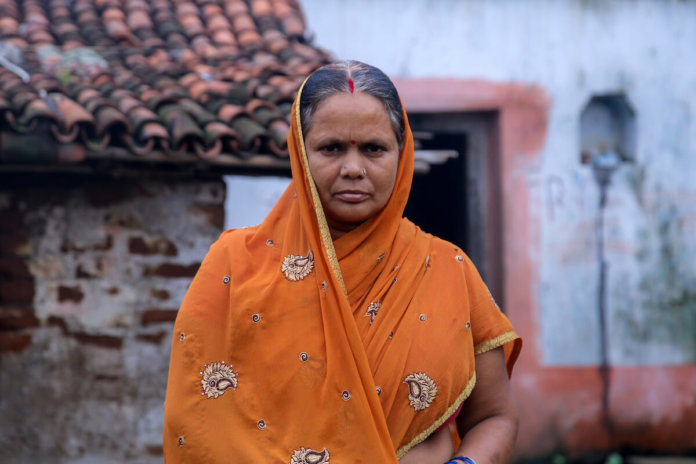
After 17 years of marriage, Leela’s husband Arvind Ahirwar, 44, who works at a private firm, finally agreed and got a toilet constructed in their three-bedroom house in 2009. But tragedy quickly followed.
Arvind said: ‘After my wife insisted, I agreed to get a toilet built in the house. But I met with an accident after handing over the money to the constructor. I had severe hip and leg injuries and was bedridden for eight months. We stopped the construction immediately and then my wife agreed to never ask for a toilet again as she feared losing me.’
Open defecation means villagers, especially children, young girls and women are more prone to disease and infections.
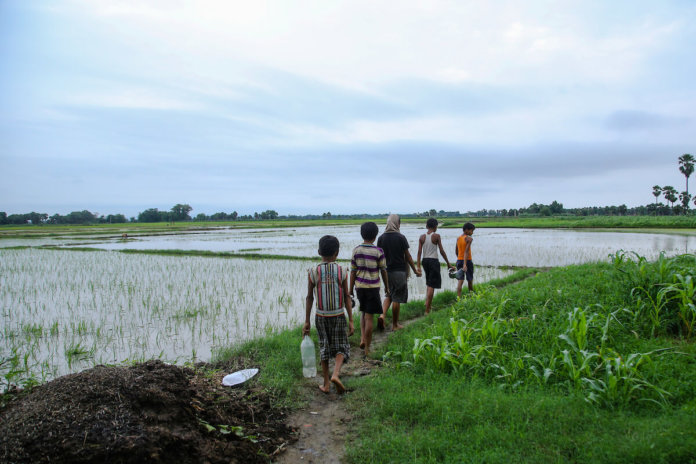
Renu Kumari, 13, feels scared to wake up at 3am every morning in order to use the fields before sunrise with her mother. She has often caught infections and insect bites that force her to skip school for several days.
She said: ‘I often get insect or mosquito bites on my private parts. I have a toilet in my school, which is outside this village, but we spend only a few hours a day in school. At night, we have to use the fields again. It is torturous every night to walk so far and then wake up every morning before sunrise to again relieve ourselves. We avoid water even in the scorching heat and eat less so that we do not need to use the toilet so often.’
The villagers walk about a kilometer from their homes to find a private open field to defecate. The elders of the family, who can barely walk, often use drains outside their homes instead.
Villager Brij Nandan Ahirwar, 89, said: ‘I can barely walk 20 steps due to my age. I have no choice but to defecate in the drains outside my house, in front of everyone. It is sad but there is nothing much we can do. We cannot risk the lives of the people by building a toilet. I have seen many deaths in the family of those who have tried building a toilet. It is tragic and not worth taking the risk. This is how we must live.’
Superstition in India is considered a widespread social problem and is usually known as being attributed to a lack of education. The beliefs and practices vary from region to region. Some beliefs and practices are centuries old and are considered part of tradition and religion, and as a result introduction of new prohibitory laws often face opposition by many communities.
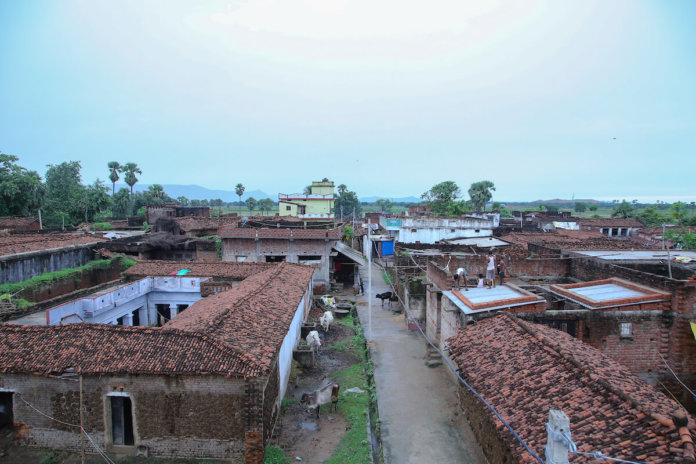
The lack of toilets in Nawada means the families rarely see relatives visiting the village.
And when it comes to finding a partner to marry, the boys have to either leave the village, or marry a girl from the same village, as no girl wants to marry a boy from this village now a day.
Arvind added: ‘We have no choice but to lie to the girls and their families. Most of the boys have left the village and settled somewhere else; or the ones still here have no choice but to marry girls of this village who are aware of our circumstances.
‘If we find a good match outside the village, we prefer not to talk about the toilet situation in the house. We tell them about everything else that we have in the house like air conditioners, refrigerators, gas cooker, television, and vehicles but we just do not talk about the toilet system because we know that the girl would never agree to marry one of our boys then.’
Villagers have feared even getting a community toilet but slowly, people are beginning to change their minds.
Arvind added: ‘There is no way anybody would build a toilet in their house. But slowly, we are coming round to the idea of having a community toilet as our sufferings, especially of the women, have gone beyond.
‘Constructing a community toilet would mean a toilet for everyone which could mean we’re all killed together. But we’re happy if we all end up dying together.’
‘Constructing a community toilet would mean a toilet for everyone which could mean we’re all killed together. But we’re happy if we all end up dying together.’
The local administration is trying to convince people to get rid of the superstitious belief and get toilets made in the village. Kaushal Kumar, District Magistrate of Nawada, said: ‘It is sad that people are living with these superstitious beliefs even in the 21st century. We are putting in all the efforts to convince them to construct toilets at both individual and community level. We will visit the village and find appropriate places where the toilets could be constructed for people and also convince them to build one in their homes too. We’re currently still working on this.’

